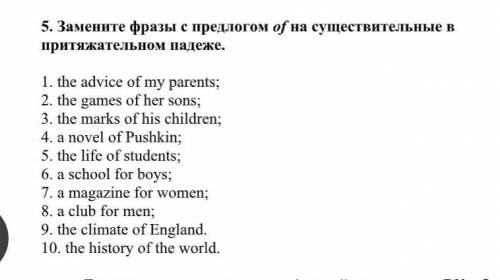
1.I've just made an oppointment to see Dr Graves.
Yet всегда пишется в конце отрицательных и вопросительных предложений,поэтому мы не пишем его сюда.
2.Have you ever had a tooth taken out?
Never пишется в отрицательных предложениях.
3.We haven't heard from Brandon yet.
Так как это предл.отрицательное,мы тут already не пишем.
4.I haven't had a temperature for 24 hours.
Если в предложении есть (last winter, July и тому подобное), то используется since.Но так как тут такого нету,мы не пишем его сюда.
5.John hasn't been to the dentist's since last May.
Объяснение на since в четвёртом предложении.
Объяснение на for:Если в редложении после предлога следует описание отпрезка времени,например:four months,a long time и т.д,то пишется for.А тут такого нету,поэтому мы for сюда не приписываем.
6.Has the doctor called you in yet?
Объяснение на это я уже написала в первом предложении.
7.Pat has never felt pain as bad as that in her life.
Предложение отрицательное,так что пишем тут never.Ever пишется в вопросительных предложениях.
8.I've already done my exercise for the day.
Предложение положительное,а yet пишется в отрицательных и вопросительных,так что мы тут пишем already.
1. Robert was glad (to finish, to have finished, to be finishing) the book last month.
2. We are happy (to be going, to go, to have gone) to the party now.
3. Susan started (to knit, to be knitting, to have knitted) a new sweater.
4. Mr. Swindon decided (to fish, to be fishing, to have fished) in the morning.
5. All the students were happy (to pass, to have passed, to be passing) their winter session.
6. I am glad (to skate, to have skated, to be skating) at the moment.
7. This cassette can (to be bought, be bought, be buying) everywhere.
3. Sandra is happy (to be told, to have been told, to tell) this news.
9. Mrs. Huston was sorry (to receive, to be receiving, to have received) the torn parcel.
10. You may (invite, to invited, be invited) all the people you want to your birthday party.
11. This rule must (to be learnt, be learnt, be learning) to do the exercise.
2. Bob needn't (to come, come, be coming) with you. We have enough people to help us.
13. Kerry is really happy (to watch, to be watching, to have watched) her favourite soap opera now.
14 Colin was upset (to have lost, to lose, to be losing) the match yesterday.
15. Mike is always the first (to help, to be helping, to have helped) us in need.
1.my parents' advice
2.her son's games
3.his children's marks
4. Pushkin's novel
5. students' life
6.boys' school
7. women's magazine
8. men's club
9. England's climate
10.world's history